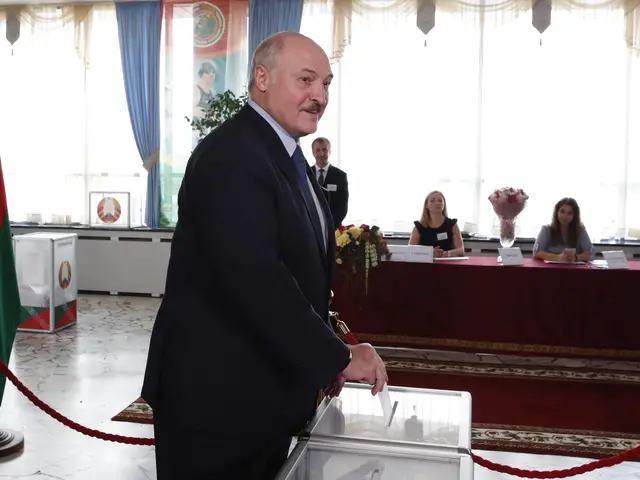Belarus has been seeing mass protests after incumbent President Alexander Lukashenko won a sixth term in the Aug. 6 elections, sparking worldwide attention and concern.
The country's opposition, which gathers around presidential candidate Svetlana Tikhanovskaya, rejected the election results and accused the authorities of massive falsifications during the voting.
The situation has triggered various reactions in the international community, with the United States and the European Union preparing to step in and other organizations and countries calling for constraint and urging outside forces not to interfere in Belarus' internal affairs.
U.S. Deputy Secretary of State Stephen Biegun is going to visit Russia and Lithuania soon to discuss the crisis in Belarus, Reuters reported Saturday.
Russian President Vladimir Putin and his Finnish counterpart Sauli Niinisto discussed the situation in Belarus over the phone Friday, the Kremlin said.
The Kremlin statement said Putin reaffirmed Russia's stance that "meddling in the internal affairs of a sovereign state and attempting to exert external pressure on the legitimate authorities are unacceptable."
Finland expressed the hope that the situation in Belarus can return to normal as soon as possible, the statement added.
Russian Foreign Minister Sergei Lavrov and his Belarusian counterpart Vladimir Makei opposed external interference in the recent events in Belarus in a phone conversation Friday.
"It was noted that the solution of the existing problems in Belarus is its internal affairs and it does not require external intervention and even more so instructions about who and how to conduct dialogue," the Russian Foreign Ministry said in a statement.
According to the statement, Lavrov and Makei emphasized the need for all external forces to respect the sovereignty and independence of Belarus.
They also underlined the necessity of dropping attempts to provoke confrontation in Belarusian society and undermine the normalization of the situation.
Also on Friday, Kremlin spokesman Dmitry Peskov told reporters that Russia is ready to help resolve the situation in Belarus if its leadership wants it, but will not interfere in its internal affairs.
UN Secretary-General Antonio Guterres on Friday called for restraint and calm in Belarus and called on Belarusians to address post-election grievances through dialogue to preserve peace in the country, his spokesman Stephane Dujarric said in a statement.
French President Emmanuel Macron proposed on Thursday that the European Union (EU) facilitate a dialogue in Belarus along with other institutions and Russia.
"We hope that this dialogue can be established by the Belarusians themselves. But the EU stands ready to accompany them -- if our role of mediation can be useful and desired by the Belarusians, with other institutions, notably the OSCE, and including Russia," said Macron.
Macron made the remarks at a joint press conference with German Chancellor Angela Merkel following their meeting at Macron's Mediterranean presidential retreat, Fort de Bregancon.
Merkel said that Lukashenko "has not sought to speak" to any EU leaders. "It is clear we are telling Putin that we are seeking a dialogue," she added.
China believes that Belarus can maintain political stability and social tranquility through its own efforts, Foreign Ministry Spokesperson Zhao Lijian said Wednesday at a press briefing.
China has always respected the development path chosen by the Belarusian people and their efforts to safeguard national independence, sovereignty, security and development, Zhao said.
China is aware that the domestic situation in Belarus has become complicated, Zhao said, adding that "as good friends and partners, we do not hope that the situation in Belarus will escalate into chaos and oppose external forces triggering division and disturbances in Belarusian society."
 简体中文
简体中文





